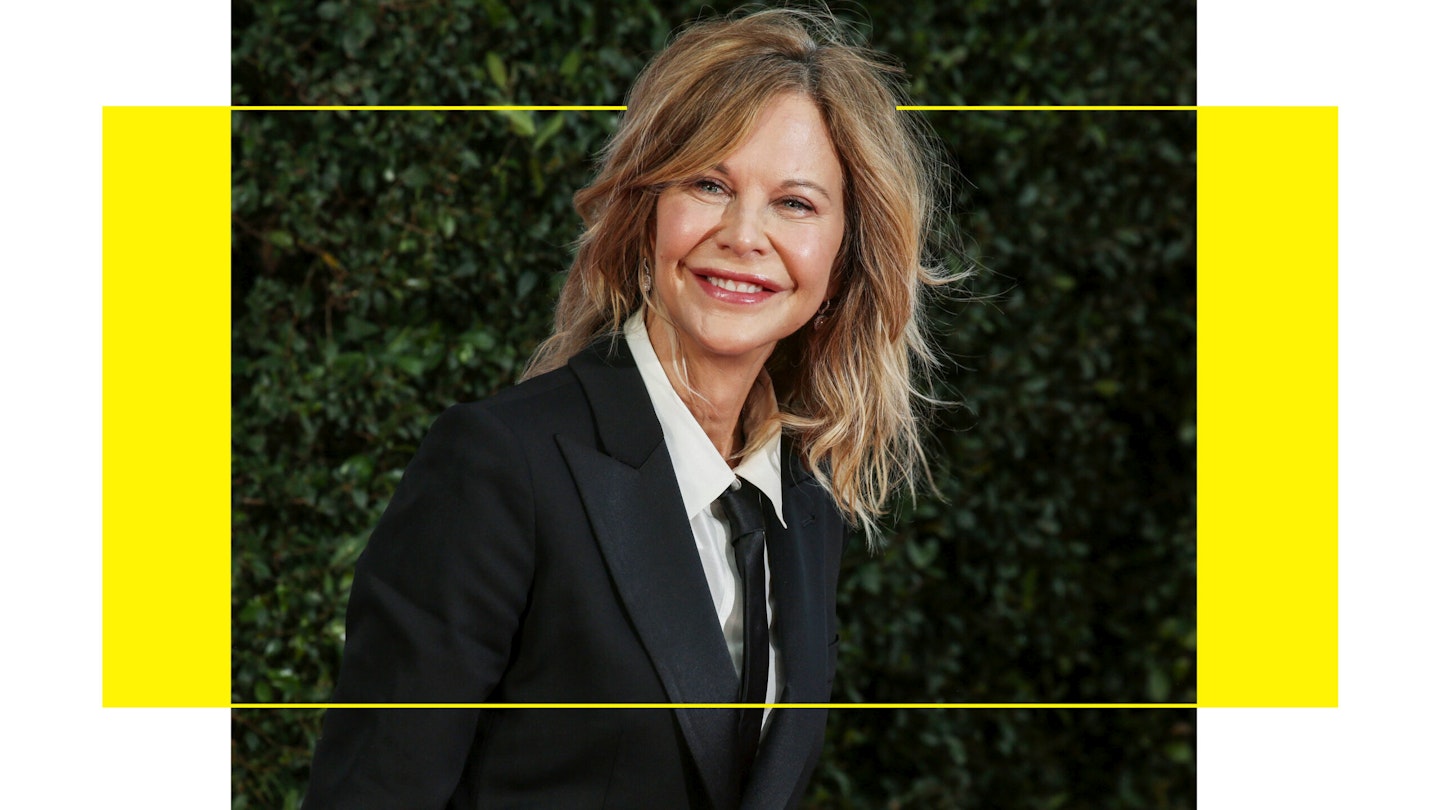In an early scene in What Happens Later, Meg Ryan’s first film since 2015, her leading man, veteran X-Files alumnus David Duchovny, is wandering through an airport. His phone has run out of battery, so he unplugs an advertising hoarding, crashing an advert for a romcom. Called Romcom. ‘Those are self-aware cinematic choices that I make,’ Ryan tells Grazia. She is the film's co-writer, director and star of the film, and adds, ‘What I want to say is that this genre can be stretched, can evolve, can accommodate a lot of different ideas, you know?’
Has Ryan just reinvented the movie format that made her name? ‘This is not just a simple romcom about what’s going to happen, will they or won’t they end up together. It’s about many more things.’ Most famed for her era-defining work with the late writer/director Nora Ephron, who is posthumously thanked at the end of What Happens Later, Ryan is the most famous face of the golden age of romcom. With timeless classics like When Harry Met Sally and You’ve Got Mail, she instructed generations through the possibilities of laughing through love.
With What Happens Later, she is rewriting the rules. ‘I don’t think this is a traditional romcom at all,’ she says. Duchovny plays Bill, a Gen X businessman who once defined himself by the music rather than the women he loved. Ryan plays his ex, Willa. Lovers who separated over 25 years ago, they meet by chance at the airport, where a series of theatrical mishaps gives them the chance to go over what went wrong. ‘It’s almost a meditation on love, really, or relationships,’ says Ryan. ‘How come love can be so easy and relationships feel so hard?’
Telling a love affair in the past tense reframes the traditional romcom narrative. What results is a beautifully wise, often sadly reflective two-hander on how no relationship ever really ends. A piece of past love will always live on in you. ‘Regret is something that’s present in the movie,’ says Ryan. ‘It’s the anatomy of making peace. Willa talks about it, she says there
is a sacrament of reconciliation. Regret is something that’s present in the movie because they didn’t spend their lives together and they’re trying to figure that out. It’s a movie about forgiveness.’
In terms of the subject matter of a 50- something woman reconciling her romantic past, there is common ground with the Sex And The City reboot And Just Like That. Tonally, however, it could not be more different. This is grown-up, emotional excavation, underpinned by a daring question: what would life look like if we got to forensically analyse relationships that happened half a lifetime ago?
The film was very much a labour of love for Ryan. The director’s role certainly suits her. Is being in control of a project like this exposing or something she relishes? ‘Oh, I like it,’ she says. ‘I fucking like it. I really like that it’s not a traditional romcom, that it treads in all these other waters. We had to do it in 21 days, for a tiny amount of money. We didn’t have a sound designer. We didn’t have playback on the set. We didn’t have a steadycam. And we did it.’
‘What Happens Later’ is in cinemas now
